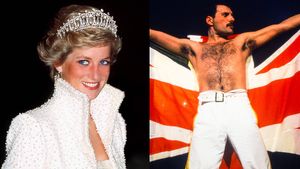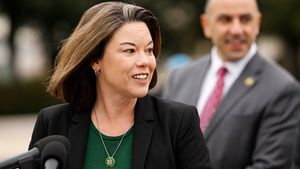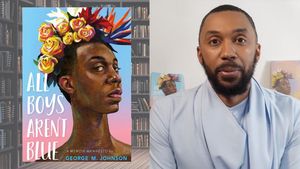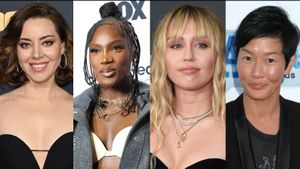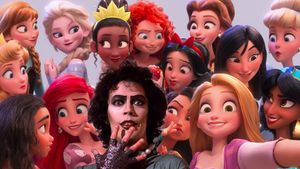GLAAD’s annual Where We Are on TV Report was just released, letting us know how TV networks, cable, and streamers are doing when it comes to LGBTQ+ representation.
One of the biggest findings in this year’s report is that the overall number of LGBTQ+ characters on scripted primetime broadcast, cable, and the eight major streaming platforms actually went down this year.
The report found that while those platforms had 637 LGBTQ+ characters last year, this year, the number was only 596, a decrease of over 6 percent.
Additionally, the number of trans characters on broadcast, cable, and streaming went down from 42 to 32 this year. Of these characters, 16 are trans women, 11 are trans men, and five are nonbinary.
“At a time when transgender Americans are facing a growing number of dangerous and discriminatory attacks in rhetoric and policy, Hollywood players who are real allies to our community have a responsibility and an opportunity to create stories that humanize trans people and educate viewers about being transgender,” GLAAD President and CEO Sarah Kate Ellis said.
Part of the reason for that is that so many queer shows are being canceled. GLAAD’s report notes that a whopping 24 percent of LGBTQ+ characters are on series that have been canceled or are in its final season. 35 more characters will not return next year due to the character leaving the series or it being a miniseries or anthology.
The good news is that on cable and streaming platforms, racial diversity is up, meaning that over 50 percent of LGBTQ+ characters on those platforms are people of color. This is the first time those platforms have been above 50 percent.
For the past four years, over 50 percent of LGBTQ+ characters on broadcast have been people of color, but this year the number is slightly down to 48 percent. Still, 51 percent of all 596 characters included in the study are people of color.
“We have seen with shows like The Last of Us, Stranger Things, The Umbrella Academy, and more, that when networks and streamers put their full brand influence into LGBTQ-inclusive shows, our stories are successful critically and commercially,” said Ellis. “As the media landscape continues to grow and change, it is imperative that these companies stand behind the excellent LGBTQ storytelling their creative teams are telling, so these series are able to more deeply explore the lives and stories of characters audiences have come to love. With attacks on the LGBTQ community in political and news spaces, Hollywood has more influence than ever and it's critical the stories they invest in telling include fair and accurate depictions of LGBTQ people that reflect the humanity of our community."
You can
read the full report here.










